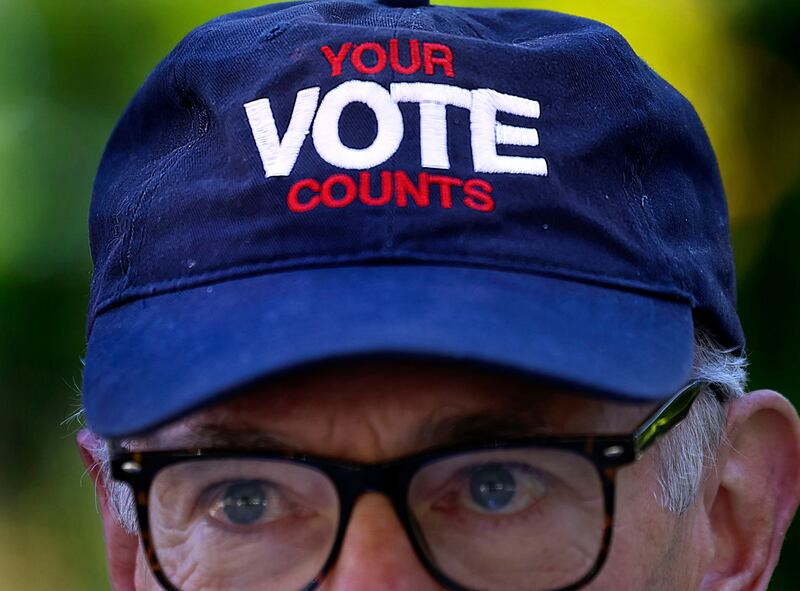As former University of Notre Dame president, The Rev. Theodore Hesburgh, once said, “Voting is a civic sacrament.”
Despite all the rhetoric, the nastiness and the accusations, the pollsters and the pundits, when the people speak, their word is deafeningly final. And on Tuesday, the American people showed again that they hold the power in the United States, and they once again surprised the experts.
The expected national red wave didn’t materialize the way many had expected. As of Wednesday morning, the balance of power in the House and Senate remains uncertain as votes were being counted. Georgia’s Senate race may head to a December runoff.
Despite widespread discontent with inflation and high gasoline prices (exit polls found more than one-third of voters saying inflation was their most important issue), many voters seemed to be motivated by other things.
Many of the candidates former President Donald Trump endorsed did not do well, which could have major implications on the future of the Republican Party and the former president’s influence. The idea that the 2020 election was rigged seemed to be a loser, and Florida Gov. Ron DeSantis may have pushed his way toward the top of the party.
Neither party will have a commanding hold on power in Washington. Each side will have to compromise in order to enact any legislation. That’s not a bad thing.
In Utah, the Republican Party remained solidly in power. Sen. Mike Lee brushed back a challenge from independent Evan McMullin. The GOP maintained strong majorities in the state Legislature.

And yet, the people expressed a desire to restrain the majority, soundly defeating a constitutional Amendment A, which would have allowed state lawmakers to appropriate larger portions of state money in special legislative sessions.
Importantly, irregularities and voter intimidation did not seem to be factors on Tuesday. However, the next few days could see losers challenging results in various races nationwide. It’s far too early to declare that the results of these midterms will be universally accepted.
If challenges persist, Utah is likely to be an exception. A recent Deseret News/Hinckley Institute of Politics poll showed 89% of Utahns were confident that their state and local elections would be conducted fairly. Yes, there were long lines at some polling places. In some parts of the state, mail-in ballots weren’t delivered in a timely manner. But Election Day largely went without a whiff of complaint from candidates about the process.
That is a positive reflection on Utah’s leaders and on the state’s decision years ago to embrace voting by mail, same-day registration and similar measures that built confidence in the system. While many states scrambled to handle mail-in ballots during the pandemic, Utah was a confident veteran in that process.
The one negative aspect of Utah’s election was a low turnout, estimated to be in the 40th percentile. After a few recent elections with elevated turnout, this was a disappointing setback.
Elections traditionally hinge on issues. As former President George H.W. Bush famously learned in 1992, the economy weighs heavily on voter minds. Former House Speaker Tip O’Neill famously said all politics is local.
Yet, in recent years, it has seemed that all politics is national, with larger party issues and strong personalities dominating discussions and motivating voters. That trend appears to remain alive.
Voters now must be patient as votes are counted. For their part, political parties must take stock of their performance and evaluate how best to use whatever power voters have granted them, and how to make themselves more appealing to voters in the future.
It’s natural to hear people talk about each election as being the most important in history. In many ways, that’s always true. Each election has enormous implications for its own period in time.
But while the people hold ultimate power in the United States, their word is never truly final.
As actress and author Ilka Chase once said, “Democracy is not an easy form of government, because it is never final; it is a living, changing organism, with a continuous shifting and adjusting of balance between individual freedom and general order.”
Ultimately, Tuesday was a remarkable continuation of a great democratic tradition.
The miracle of that changing organism and the sacredness of the civic sacrament of voting is beautiful, indeed, and it is a great reason to feel proud to be American.

